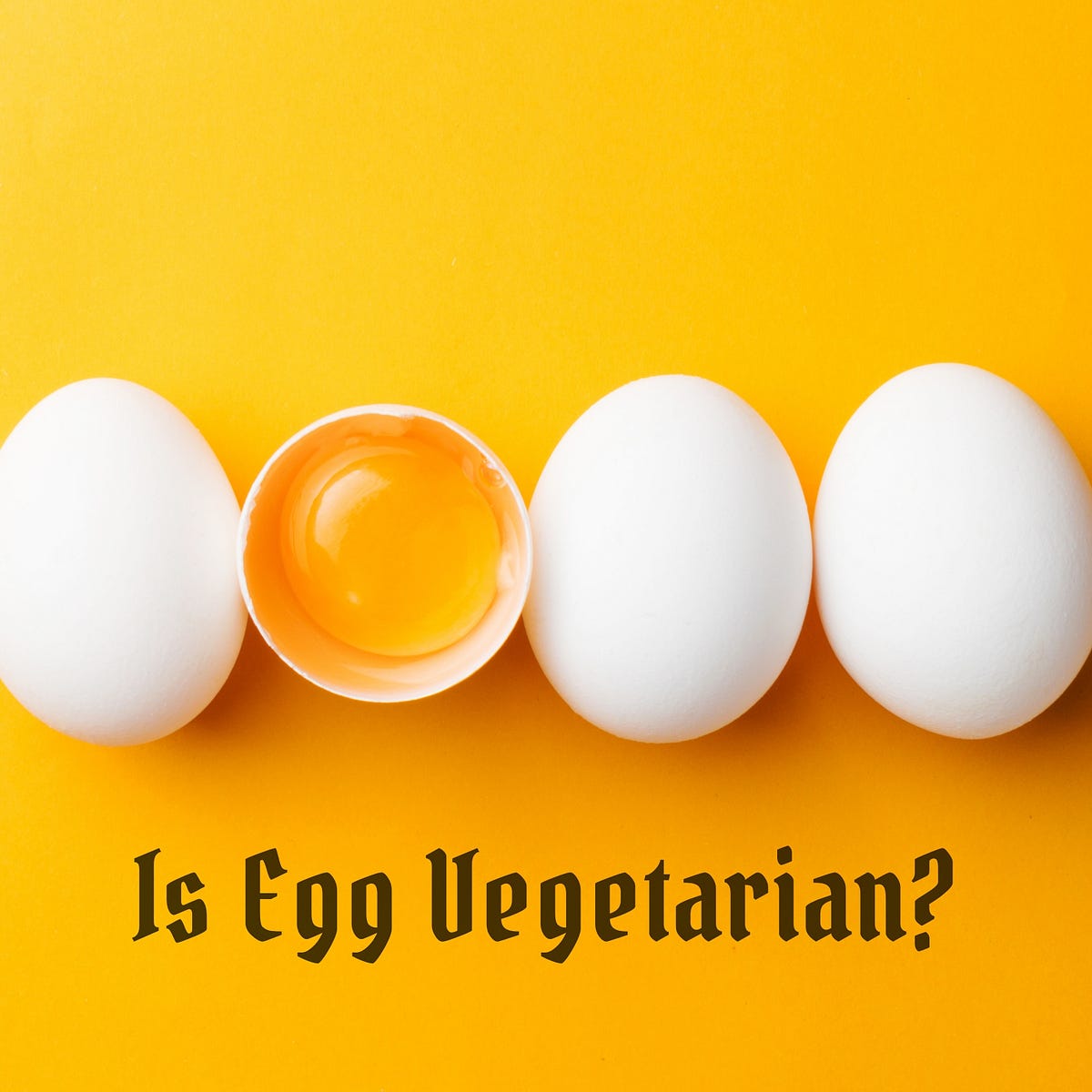
Expert Explains if Eggs are Vegetarian
Expert Explains if Eggs are Vegetarian: It’s a question that sparks more debate than you might think! Are eggs, a staple in many diets, truly compatible with vegetarianism? The answer, surprisingly, isn’t a simple yes or no. We’ll delve into the biological, ethical, and cultural nuances surrounding egg consumption within various vegetarian lifestyles, exploring different perspectives and ultimately helping you decide where you stand on this surprisingly complex topic.
From the biological process of egg production to the ethical considerations of consuming animal products, we’ll examine the arguments both for and against including eggs in a vegetarian diet. We’ll even explore how cultural traditions and personal beliefs shape individual viewpoints. Get ready to crack open this fascinating discussion!
Defining Vegetarianism
Vegetarianism encompasses a diverse range of dietary choices, all united by the exclusion of meat from the diet. However, the specific restrictions and inclusions vary significantly depending on the type of vegetarianism practiced. Understanding these nuances is crucial for accurately assessing dietary habits and their implications.
The core principle underlying all forms of vegetarianism is the avoidance of animal flesh, including beef, pork, poultry, and seafood. Beyond this fundamental principle, however, different vegetarian diets diverge in their inclusion or exclusion of other animal products, leading to a spectrum of approaches.
Lacto-Ovo Vegetarianism
Lacto-ovo vegetarians abstain from all meat but include dairy products (milk, cheese, yogurt) and eggs in their diet. This approach allows for a relatively wide range of food choices, incorporating many plant-based proteins and nutrients supplemented by the animal-derived products. Examples of foods typically included are fruits, vegetables, grains, legumes, nuts, seeds, dairy products, and eggs. Foods excluded are all types of meat, poultry, and seafood.
Many lacto-ovo vegetarians choose this lifestyle for ethical, environmental, or health reasons, enjoying the benefits of a predominantly plant-based diet while maintaining access to the nutrients found in dairy and eggs.
Veganism
Veganism represents the strictest form of vegetarianism. Vegans exclude all animal products, including meat, poultry, seafood, dairy, eggs, honey, and any other products derived from animals. This approach requires careful planning to ensure adequate intake of essential nutrients like vitamin B12, iron, and calcium, often necessitating supplementation or strategic food choices. Commonly included foods are fruits, vegetables, legumes, grains, nuts, seeds, and plant-based alternatives to dairy and eggs (e.g., soy milk, tofu, tempeh).
Excluded foods encompass all animal products, emphasizing a complete avoidance of animal exploitation and suffering.
Other Vegetarian Diets
Beyond lacto-ovo vegetarianism and veganism, there are other variations, sometimes less strictly defined. For example, some individuals might identify as pescatarian, including fish and seafood in their diet while excluding other meats. Others might follow a flexitarian diet, primarily vegetarian but occasionally incorporating meat. These approaches highlight the flexibility and individual variations within vegetarianism. These less strictly defined approaches often reflect a transition towards a more plant-based diet or a personal approach that balances ethical considerations with dietary preferences.
Understanding these variations helps appreciate the broad spectrum of choices within vegetarian lifestyles.
The Biological Classification of Eggs
Eggs, specifically hen’s eggs, are a fascinating biological product, and understanding their creation sheds light on why their vegetarian status is a complex issue. Their production is a natural process within the hen’s reproductive system, and their composition reveals their inherent connection to animal life.Egg Production in HensThe process begins in the hen’s ovary, where thousands of immature ova (yolks) develop.
Once a yolk matures, it is released into the oviduct, a long, convoluted tube. As the yolk travels down the oviduct, several layers are added. The first is the thick albumen (egg white), which provides cushioning and nutrients. Then, two thinner layers of albumen are added, followed by the shell membranes, and finally, the hard calcium carbonate shell.
The entire process takes approximately 24 hours. This intricate biological process firmly places eggs within the animal kingdom.
Egg Components, Expert explains if eggs are vegetarian
The hen’s egg is composed of three main parts: the yolk, the albumen (egg white), and the shell. The yolk is the main source of nutrients for the developing chick, containing fats, proteins, and vitamins. The albumen, a predominantly protein-rich substance, provides additional nutrients and protection. The shell, a porous calcium carbonate structure, protects the developing embryo from damage and microbial invasion.
Each component plays a vital role in the egg’s function and demonstrates its biological origin.
Comparison with Other Animal Products
From a biological perspective, eggs share similarities and differences with other animal products. Like milk and meat, eggs are products of animal reproductive processes and contain various animal-derived proteins and fats. Unlike milk, which is a secretion produced continuously, eggs are produced periodically and contain a developing embryo (although this is generally destroyed by cooking). Unlike meat, which is derived from muscle tissue, eggs are composed of yolk, albumen, and shell – structures involved in reproduction and the protection of a developing organism.
This fundamental difference in biological origin and function distinguishes eggs from other animal products, although they all share the commonality of originating from animal sources.
Ethical Considerations Regarding Egg Consumption in Vegetarian Diets
The question of whether eggs belong in a vegetarian diet is a complex one, sparking debate among vegetarians and vegans alike. It hinges less on the biological classification of eggs (which we’ve already established) and more on individual ethical stances and interpretations of vegetarianism. The core of the discussion lies in the treatment of hens and the impact of egg production on animal welfare.
Arguments For and Against Vegetarian Egg Consumption
The ethical considerations surrounding egg consumption within a vegetarian diet are multifaceted. Some argue that eggs are a natural byproduct of animal husbandry and pose minimal ethical concerns, while others highlight the potential for animal suffering inherent in industrial egg production. Let’s examine these opposing viewpoints in detail.
| Pro-Vegetarian Egg Consumption | Against Vegetarian Egg Consumption |
|---|---|
| Many vegetarians believe that consuming eggs doesn’t directly harm the hen, as egg-laying is a natural process. They argue that as long as hens are treated humanely, the consumption of their eggs is ethically acceptable within a vegetarian framework. This perspective often emphasizes the potential for sustainable, free-range egg production methods that prioritize animal welfare. Furthermore, eggs provide a significant source of protein and other essential nutrients, supporting a healthy vegetarian diet. | Conversely, critics argue that even with humane treatment, the egg industry inherently involves the exploitation of hens. The continuous egg production cycle often leads to hens being confined to small cages, limiting their natural behaviors and causing stress. Even in free-range systems, male chicks are often culled shortly after hatching because they don’t lay eggs, raising ethical concerns about their treatment. The focus shifts from the egg itself to the entire production system and its impact on the lives of the hens and male chicks. Furthermore, some argue that the very act of utilizing an animal for its products, regardless of the treatment, contradicts the core principles of vegetarianism which generally aim to minimize harm to animals. |
Cultural Perspectives on Eggs and Vegetarianism: Expert Explains If Eggs Are Vegetarian
The definition of vegetarianism, while seemingly straightforward, is surprisingly fluid and heavily influenced by cultural norms and traditions. What constitutes a vegetarian diet can vary significantly across different societies, impacting how people view the consumption of eggs within that framework. This cultural lens shapes not only dietary choices but also the social and ethical considerations surrounding vegetarianism itself.Cultural practices and traditions significantly influence the acceptance of eggs within vegetarian diets.
In some cultures, eggs are deeply integrated into culinary traditions and considered a staple food, regardless of broader dietary restrictions. Conversely, in other cultures, the consumption of eggs might be viewed with more skepticism or even outright rejection by those identifying as vegetarian. This difference highlights the complex interplay between personal beliefs, religious practices, and societal norms in defining vegetarianism.
Cultural Groups and Egg Consumption
The inclusion or exclusion of eggs in vegetarian diets varies widely across different cultures. For example, in many Western cultures, lacto-ovo vegetarianism (including dairy and eggs) is a common interpretation of vegetarianism. This is often due to the historical and readily available nature of both dairy products and eggs in these societies. Conversely, in some parts of India, where vegetarianism is often linked to religious practices like Hinduism, the consumption of eggs might be less prevalent, even among those who consume dairy products.
Similarly, in certain Buddhist traditions, the consumption of eggs might be discouraged or even prohibited due to ethical considerations surrounding animal life.
Comparing and Contrasting Cultural Perspectives on Egg Consumption within Vegetarian Diets
Understanding the diverse perspectives requires a comparative approach. The following points illustrate the range of cultural viewpoints:
- Western Cultures (e.g., North America, Europe): Lacto-ovo vegetarianism is frequently the norm, with eggs commonly incorporated into meals and considered an acceptable part of a vegetarian diet. This acceptance stems from readily available resources and less stringent religious or cultural restrictions.
- South Asian Cultures (e.g., India): Vegetarianism is often associated with religious beliefs and practices, and the consumption of eggs can be viewed with varying degrees of acceptance or rejection. Many Hindu vegetarians avoid eggs, aligning with their broader dietary and ethical principles.
- East Asian Cultures (e.g., China, Japan): While vegetarianism exists in these cultures, the prevalence and acceptance of eggs within vegetarian diets can vary significantly depending on regional and individual beliefs. Some individuals might consume eggs while adhering to other aspects of a vegetarian lifestyle.
- Latin American Cultures: Dietary practices vary greatly across Latin America. While some individuals might consider eggs part of a vegetarian diet, others may not, depending on personal beliefs and cultural norms.
It’s crucial to remember that these are broad generalizations, and individual practices within each culture can differ widely. The relationship between culture and dietary choices is complex and multifaceted, requiring a nuanced understanding to avoid sweeping statements.
The Role of Eggs in Vegetarian Diets

Source: hurrythefoodup.com
Eggs are a surprisingly versatile and nutritious food that can play a significant role in a well-balanced vegetarian diet. Often debated in vegetarian circles, their inclusion hinges on individual ethical and dietary choices, but their nutritional benefits are undeniable. This section explores how eggs contribute to a complete vegetarian diet and provides examples of their incorporation into delicious and healthy meals.
Nutritional Benefits of Eggs
Eggs are a powerhouse of nutrients. They are an excellent source of high-quality protein, essential for building and repairing tissues. One large egg contains approximately 6 grams of protein, providing all nine essential amino acids our bodies cannot produce on their own. Beyond protein, eggs are rich in various vitamins and minerals crucial for overall health. For instance, they are a significant source of vitamin D, essential for calcium absorption and bone health; choline, vital for brain development and function; and riboflavin (vitamin B2), crucial for energy metabolism.
Furthermore, eggs contain lutein and zeaxanthin, antioxidants that protect eye health. Minerals like selenium, an antioxidant that protects cells from damage, and iodine, essential for thyroid function, are also present in considerable amounts. The nutritional profile of eggs makes them a valuable addition to any vegetarian diet aiming for nutritional completeness.
Incorporating Eggs into Vegetarian Meals for Nutritional Completeness
Eggs’ versatility allows for easy integration into a wide array of vegetarian meals. They can be incorporated as a primary ingredient, such as in frittatas, quiches, or omelets, or used as a binding agent in vegetarian burgers or meatballs, adding both flavor and protein. Scrambled eggs make a quick and easy breakfast, while hard-boiled eggs provide a convenient and protein-rich snack.
Adding a poached egg to a salad or using eggs in baking, like in muffins or cakes, are other creative ways to increase the nutritional value and flavor profile of vegetarian dishes. The richness of eggs complements various vegetables, grains, and legumes, ensuring a balanced and satisfying meal.
Sample Vegetarian Meal Plan Including Eggs
This sample meal plan demonstrates how eggs can be easily incorporated into a healthy and varied vegetarian diet. The nutritional content is approximate and may vary depending on specific ingredients and portion sizes.
| Meal | Dish | Approximate Nutritional Content (per serving) |
|---|---|---|
| Breakfast | Spinach and Feta Omelet with Whole-Wheat Toast | Approximately 350 calories, 20g protein, 15g fat, 30g carbohydrates |
| Lunch | Quinoa Salad with Hard-Boiled Eggs and Roasted Vegetables (bell peppers, zucchini, onions) | Approximately 400 calories, 25g protein, 10g fat, 50g carbohydrates |
| Dinner | Vegetarian Chili with a side of cornbread and a dollop of sour cream | Approximately 500 calories, 30g protein, 20g fat, 60g carbohydrates |
| Snack | Hard-boiled egg with a small apple | Approximately 100 calories, 7g protein, 5g fat, 15g carbohydrates |
Note: This is a sample meal plan, and individual needs may vary. Consult a nutritionist or dietitian for personalized dietary advice.
Illustrative Examples of Egg Use in Vegetarian Cooking
Eggs, while technically an animal product, play a significant role in many vegetarian kitchens, providing binding, leavening, and richness to a wide array of dishes. Their versatility allows for creative culinary exploration within the constraints of a vegetarian diet. Let’s delve into some specific examples.
Vegetarian Egg Recipes
| Recipe Name | Description | Instructions |
|---|---|---|
| Fluffy Scrambled Tofu and Egg Scramble | This vibrant scramble bursts with color and texture. The silken tofu mimics the creaminess of eggs, while the bright yellow yolks add a richness that complements the earthy tofu. The aroma is savory and slightly nutty, hinting at the spices and herbs used. The texture is soft and fluffy, almost cloud-like, making it a delightful morning or brunch option. | Crumble firm or extra-firm tofu into a bowl. Whisk together 2-3 eggs with a splash of milk or plant-based milk, salt, pepper, and your favorite herbs (chives, parsley, or dill work well). Sauté diced onions and bell peppers until softened. Add the tofu and egg mixture to the pan. Cook, stirring frequently, until the tofu is heated through and the eggs are set but still slightly moist. Serve immediately. |
| Spinach and Feta Egg Tartlets | These mini tarts offer a sophisticated combination of flavors and textures. The golden-brown pastry crust provides a satisfying crunch, contrasting beautifully with the creamy, cheesy filling and the tender spinach. The aroma is rich and buttery, with hints of feta cheese and earthy spinach. The overall texture is a delightful mix of crispy, creamy, and slightly soft. | Prepare your favorite mini tart shells. Sauté fresh spinach until wilted. In a bowl, whisk together 2-3 eggs, crumbled feta cheese, salt, pepper, and a pinch of nutmeg. Stir in the sautéed spinach. Fill the tart shells with the egg mixture. Bake in a preheated oven at 375°F (190°C) for 15-20 minutes, or until the filling is set and lightly golden. Let cool slightly before serving. |
| Egg Fried Rice with Vegetables | A classic comfort food, this vegetarian fried rice is packed with flavor and a satisfying mix of textures. The rice is fluffy and slightly sticky, while the vegetables offer a delightful crunch. The eggs create a rich, savory coating around the rice and vegetables, adding depth to the overall taste. The aroma is fragrant and slightly smoky, with hints of soy sauce and garlic. The visual appeal is a colorful mix of textures and hues from the assorted vegetables. | Cook rice according to package directions. Whisk 2-3 eggs with a splash of soy sauce. Heat oil in a wok or large skillet. Add the beaten eggs and scramble until cooked through. Remove eggs from the pan. Add diced vegetables (onions, carrots, peas, etc.) and stir-fry until tender-crisp. Add cooked rice and the scrambled eggs back to the pan. Stir-fry until heated through and well combined. Season with soy sauce, garlic, and ginger to taste. Serve hot. |
Wrap-Up

Source: medium.com
So, are eggs vegetarian? The answer, as we’ve discovered, depends on your definition of vegetarianism and your personal values. There’s no single right answer, but hopefully, this exploration has given you a more nuanced understanding of the issue. Whether you ultimately choose to include eggs in your diet or not, remember that the most important thing is to make an informed decision that aligns with your own beliefs and dietary goals.
Let’s continue the conversation in the comments below!
Question & Answer Hub
Are eggs considered vegan?
No, eggs are not considered vegan. Veganism excludes all animal products, including eggs.
Do all vegetarians avoid eggs?
No. Lacto-ovo vegetarians include eggs and dairy in their diet, while vegans exclude all animal products.
Are free-range eggs more ethically acceptable?
Some argue that free-range eggs are more ethical due to improved hen welfare, but the debate continues regarding the inherent ethical implications of egg consumption.
What are the nutritional benefits of eggs for vegetarians?
Eggs are a great source of protein, choline, and various vitamins and minerals, making them a valuable addition to a vegetarian diet.
